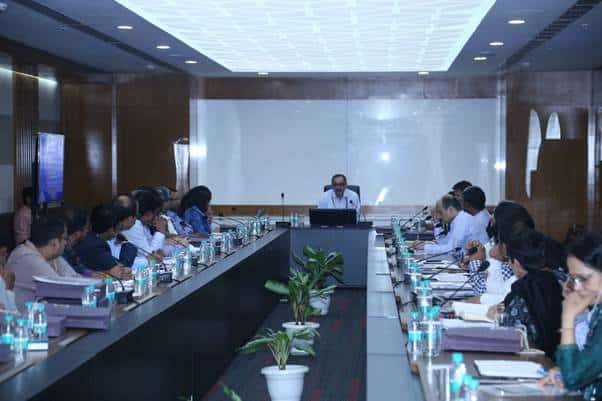WHO Expert Group Meeting Ends with Recommendations on Siddha Standards

In a pivotal move to globalize India’s traditional medical practices, the World Health Organization (WHO) collaborated with the Ministry of Ayush and the Central Council for Research in Siddha (CCRS) to host a two-day External Expert Group Meeting on July 24-25, 2025. The event aimed to establish standardized training protocols for Siddha, emphasizing the importance of evidence-based practices in traditional medicine. Key officials highlighted Siddha’s cultural significance and its potential for international recognition, marking a significant step toward integrating this ancient system into global healthcare frameworks.
Commitment to Global Standards
During the meeting, Vaidya Rajesh Kotecha, Secretary of the Ministry of Ayush, delivered a keynote address stressing the necessity for globally harmonized training standards in Siddha. He reaffirmed India’s dedication to promoting evidence-based practices within traditional medicine. Kotecha’s remarks underscored the importance of aligning Siddha with international healthcare standards while preserving its unique cultural heritage. This commitment reflects India’s broader strategy to enhance the credibility and acceptance of traditional medical systems on a global scale.
Highlighting Siddha’s Cultural and Scientific Relevance
Ms. Monalisa Dash, Joint Secretary of the Ministry of Ayush, emphasized the scientific relevance and rich cultural legacy of Siddha in her opening remarks. She pointed out that Siddha is not merely a traditional medical system but a living tradition with significant scientific backing. Dash’s comments highlighted the need for structured, evidence-based training to bolster Siddha’s international recognition. Her insights reflect a growing acknowledgment of Siddha’s potential to contribute to global health solutions while maintaining its indigenous identity.
International Collaboration and Expert Contributions
The hybrid meeting brought together 16 international experts from 11 countries, representing all six WHO regions. Dr. Kim Sungchol, Head of the TCI Unit at WHO, praised India’s leadership in traditional medicine and emphasized the organization’s vision to integrate Siddha into national healthcare systems. The sessions focused on finalizing the Draft WHO Technical Reports on Training and Practice in Siddha, facilitated by the WHO’s Traditional, Complementary and Integrative Medicine (TCI) Unit. Experts from countries such as Sri Lanka, Japan, and the USA contributed valuable region-specific insights, enriching the final draft documents.
Pathway to Global Acceptance
The successful conclusion of the expert review process marks a significant milestone in the global acceptance of Siddha. The finalized reports will aid Member States in implementing high-quality Siddha education and clinical standards, positioning Siddha as a credible component of global healthcare solutions. This event not only reflects India’s growing leadership in the WHO Traditional Medicine strategy but also strengthens its role as a global knowledge hub for Ayush systems. The collaborative efforts signify a promising future for Siddha, paving the way for its integration into mainstream healthcare practices worldwide.
Observer Voice is the one stop site for National, International news, Sports, Editor’s Choice, Art/culture contents, Quotes and much more. We also cover historical contents. Historical contents includes World History, Indian History, and what happened today. The website also covers Entertainment across the India and World.
Follow Us on Twitter, Instagram, Facebook, & LinkedIn

